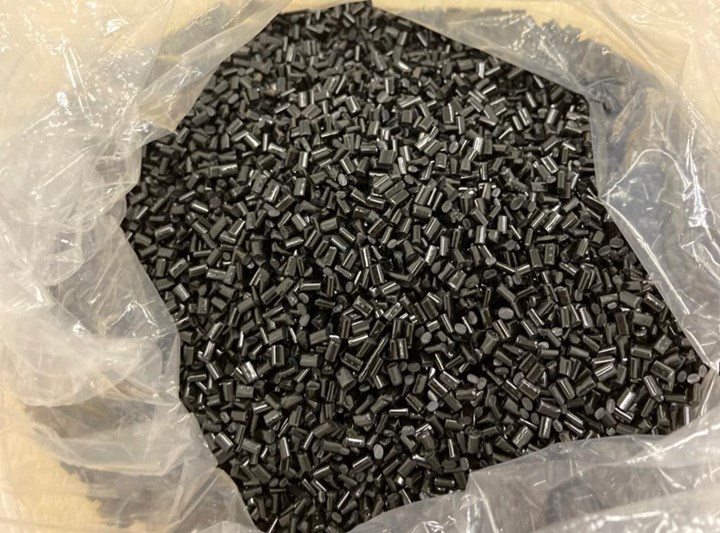Polyester Follows Fish from Sea to Table
Japanese company develops process for recycling polyester fishing nets.
announced development of a process aimed at diverting discarded polyester fishing nets from landfills, which add up to 1300 tons of waste/yr in Japan alone.
The process begins with the cleaning and drying of used fishing nets, which removes odors left over from its life at sea. Organic solvents are then used to remove coatings from the polyester. To improve heat resistance and durability, the polyester is processed with other recycled plastics. The resulting resin pellets can be used for products such as stationery and food trays.

Polyester pellets made with recycling fishing nets.
Photo: Tenjin Group
Fittingly, the resin has found its first commercial application in a seafood restaurant. Tenjin is supplying a Japanese chain with plastic trays made from the recycled fishing net resin. The trays themselves are not yet recyclable, due to an anti-slip coating on their surface. Tenjin is working on technology to meet this challenge and allow them to be recycled despite the coating agent, with the aim of creating a circular product.
Tenjin Group has set a goal of recycling 1000 tons of fishing nets annually, by 2030.
Related Content
-
Breaking News From NPE2024
Here is a firsthand report of news in injection molding, extrusion, blow molding and recycling not previously covered.
-
Multilayer Solutions to Challenges in Blow Molding with PCR
For extrusion blow molders, challenges of price and availability of postconsumer recycled resins can be addressed with a variety of multilayer technologies, which also offer solutions to issues with color, processability, mechanical properties and chemical migration in PCR materials.
-
Scaling Up Sustainable Solutions for Fiber Reinforced Composite Materials
Oak Ridge National Laboratory's Sustainable Manufacturing Technologies Group helps industrial partners tackle the sustainability challenges presented by fiber-reinforced composite materials.



